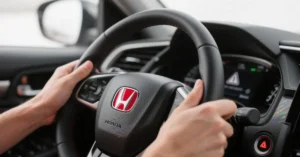Whether you’re a DIY enthusiast or a seasoned mechanic, having the right tools makes all the difference when working on a car. From basic maintenance to in-depth repairs, using the right equipment saves time, prevents damage, and improves safety. While vehicle brands and models may differ, the essentials of car repair remain the same across the board.
Here’s a global, easy-to-follow guide to 11 essential tools and resources you’ll need to fix your car-plus a few extra tips to get you started on the right track.
1. High-Quality Socket Set
A solid socket set is the foundation of any toolbox. It allows you to remove and install bolts, nuts, and fasteners across various parts of the vehicle. Look for a set that includes both metric and standard sizes, deep sockets, and extensions. A spark plug socket is also a wise addition for easy and damage-free spark plug removal.
2. Wrenches (Standard, Torque, and Impact)
Wrenches help apply the right force to fasten or remove bolts and parts. A torque wrench ensures bolts are tightened to manufacturer specs, preventing over-tightening or under-tightening. An impact wrench is great for stubborn or rusted fasteners and is essential in high-volume workshop environments.
3. Screwdrivers in Multiple Sizes
You’ll need a variety of flathead and Phillips screwdrivers for tasks ranging from dashboard removal to battery maintenance. Torx and Allen bits are also useful for vehicles with specialty fasteners. Choose ergonomic handles to make long jobs more comfortable.
4. Protective Gear
Safety always comes first. Use:
- Disposable nitrile gloves for fluid changes
- Mechanic gloves for protection from scrapes
- Safety glasses to protect your eyes from splashes or debris
- Steel-toed boots and long-sleeve clothing for extra protection in shop environments
5. Work Lights and Headlamps
Visibility can make or break your repair job. Portable work lights or LED headlamps let you focus on tight engine spaces or underbody work. Rechargeable, hands-free lights are especially convenient and reduce the risk of tripping over wires.
6. Multimeter
A must-have for electrical diagnostics, multimeters measure voltage, current, and resistance. Use it to test battery health, fuses, alternators, and to trace electrical faults without unnecessary disassembly.
7. Pliers and Wire Cutters
Needle-nose, slip joint, and groove joint pliers offer grip and control when working in tight areas. Wire cutters and strippers help during electrical repairs or wire replacements. Specialized pliers, like spark plug boot pullers, add finesse to specific tasks.
8. Jack and Jack Stands
When you need to get under the car-whether to change the oil or inspect the exhaust-you’ll need a sturdy jack and reliable jack stands. Always chock the wheels and use the stands to prevent accidents. Low-profile jacks are ideal for sports cars or vehicles with lowered suspension.
9. Repair Manuals and Online Guides
Access to step-by-step instructions and wiring diagrams can be a game-changer. Online platforms like Identifix Direct-Hit® and MotorHub’s upcoming portal offer model-specific OEM repair guides, maintenance schedules, and shortcut testing procedures for faster, safer repairs.
11. Lubricants and Fluids
Engine oil, brake fluid, coolant, and transmission fluid are staples in vehicle upkeep. Choose high-quality lubricants and always check fluid specs in your vehicle manual. Keeping a few bottles of essentials on hand can save you a trip to the shop.
Bonus Tips:
A. Use Online Forums & Communities
Web forums like r/MechanicAdvice, manufacturer-specific clubs, or online video tutorials can help you troubleshoot unique issues and learn new techniques.
B. Safe and Clean Workspace
Make sure you have adequate lighting, ventilation, and floor space. Use wheel chocks, keep a fire extinguisher nearby, and organize your tools for efficiency and safety.
C. Know Your Limits
While DIY repair can save money and build confidence, safety-critical tasks (like airbag servicing or brake system overhauls) are best left to professionals. If you’re unsure, consult a certified technician.
Final Thoughts
Having the right tools and resources can turn car repairs from a daunting task into a rewarding experience. Whether you’re changing your own brake pads or running a full-service workshop, investing in the essentials will save you time, money, and frustration in the long run.
Need professional tools, diagnostics, or expert help? Book your car service or repair through MotorHub. Serving customers across the UAE with trusted workshops, real-time booking, and expert vehicle care – all at your fingertips.



